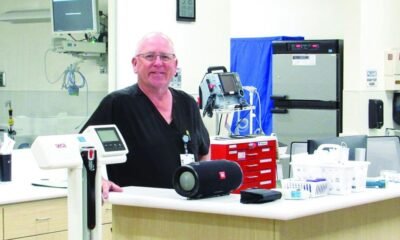Fashion
Persistent Pain After Joint Surgery: What Are Patients Facing Next?

Recent feedback from patients reveals a concerning trend: many continue to experience pain 6 to 12 months after joint surgery. This raises questions about the timing of surgical interventions and their efficacy. Some healthcare professionals suggest that patients might be postponing surgery until their conditions deteriorate beyond optimal treatment thresholds.
Pain management protocols following surgery typically include MRI scans to evaluate healing. However, many patients report that their surgeons neglect to order these critical follow-ups even after they voice persistent pain. This oversight can leave patients feeling perplexed and dissatisfied, as they grapple with ongoing discomfort similar to what they felt before the procedure.
In situations where patients report unchanged pain levels post-surgery, surgeons often suggest additional procedures. Common recommendations include:
- Medication management
- Conservative care options, such as chiropractic treatment or acupuncture
- Second opinion evaluations
- Revision surgeries
- Referrals to pain management clinics
- Lifestyle modifications
- Psychological support
Many patients, reluctant to undergo another surgical intervention, seek alternative methods for pain relief. The challenges of previous surgeries—intensive procedures, rehabilitation, and prolonged recovery—create significant apprehension about repeating the experience. Additionally, concerns about pain management involving addictive medications can further deter patients from conventional treatments.
For nearly three decades, my practice has offered integrative therapies such as acupuncture and physiotherapy. Now, as an integrated medical office specializing in regenerative therapies, we focus on preventing unnecessary surgeries. For those still struggling post-surgery, we provide HCT (formerly known as stem cell therapy) to support recovery. This treatment can be administered after surgery to enhance healing and provide a non-invasive alternative that many have found effective.
In our office, every patient undergoes a thorough evaluation, including a review of pre- and post-surgical MRIs. If a post-surgical MRI hasn’t been performed, either I or my Nurse Practitioner will promptly arrange it. By analyzing this data, we aim to get a comprehensive understanding of the patient’s condition. Most patients have already completed physical therapy and adhered to post-surgical care instructions. Our focus then shifts to promoting non-inflammatory lifestyle choices, further maximizing the effectiveness of treatments.
The customization of treatment plans, specifically designed to meet individual goals and expectations, significantly influences outcomes. Our HCT therapies are tailored and not one-size-fits-all, thus enhancing the likelihood of improvement. Importantly, patients do not face the invasiveness associated with traditional surgeries; our procedures require no general anesthesia, allowing for quick recovery times.
Upon receiving treatment, many patients return to their normal activities within days. Unlike other methods, we do not use invasive techniques such as bone marrow aspiration or adipose tissue extraction. Our regenerative cells are sourced from donated umbilical cords, tested for genetic integrity, and processed in a lab setting. The entire treatment procedure lasts around 15 minutes, ensuring efficiency and comfort for our patients. We’ve witnessed impressive results, with numerous individuals willing to share their positive experiences after treatment.
For those experiencing joint pain—especially those still suffering after surgery or contemplating a surgical option—I invite you to reach out for a complimentary consultation. More insights and articles on related topics can be found on my website.
For inquiries regarding this article, please contact me directly at [email protected]
Dr. Leisa-Marie Grgula
Chiropractic Physician
Accurate Care Medical Wellness Center
18261 N. Pima Rd. Ste. #115
(480) 584-3955


















